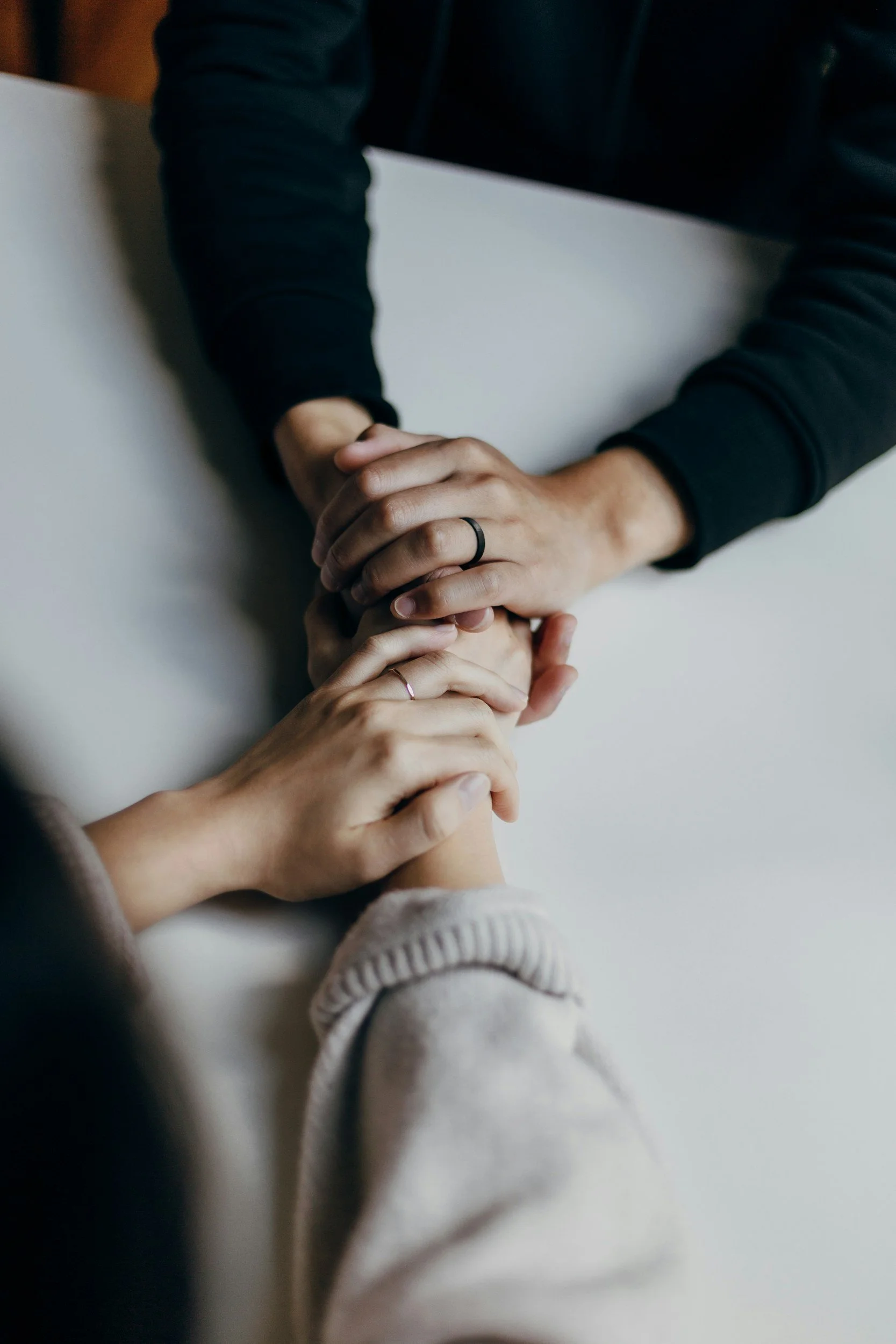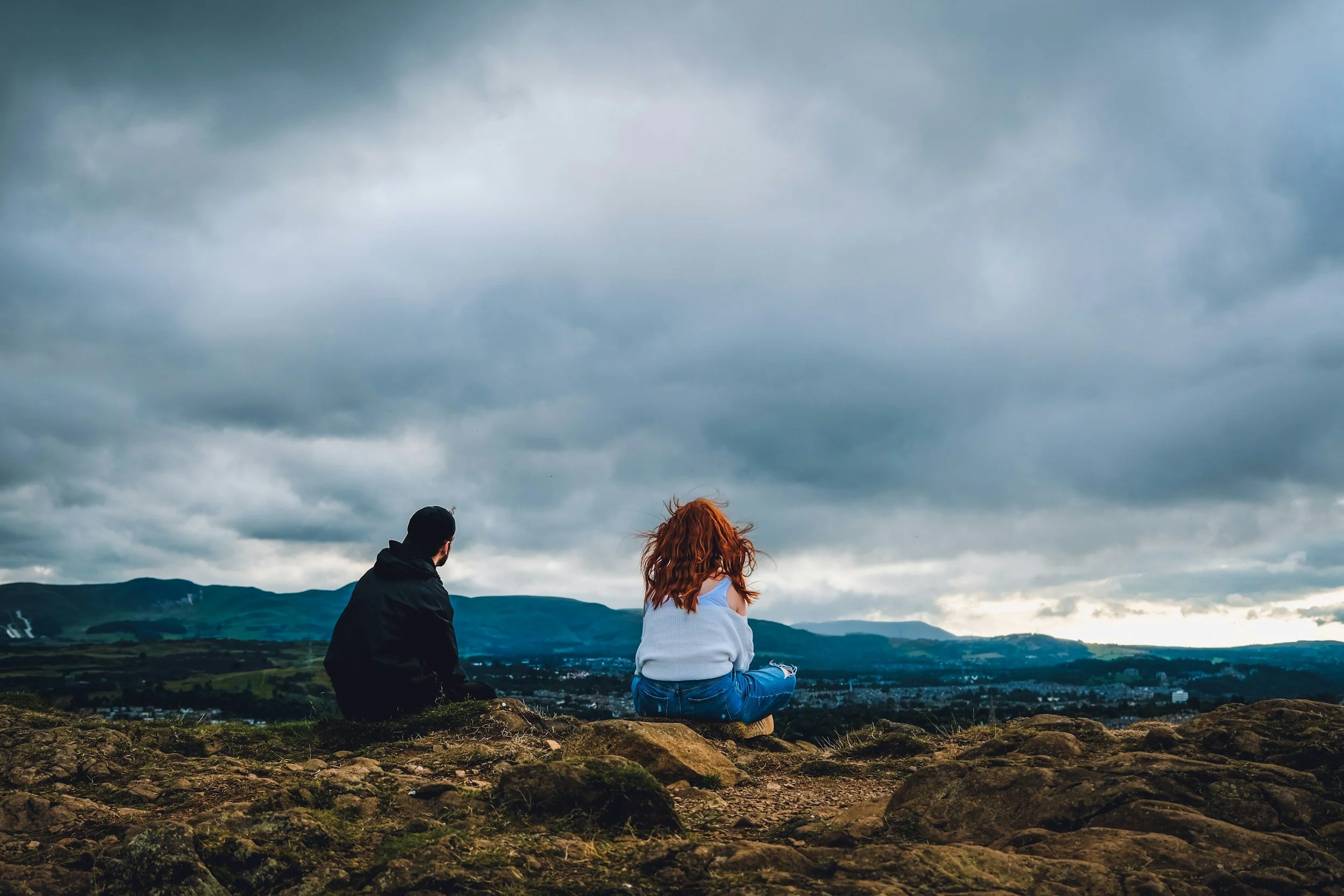
How to Stop Correcting & Start Connecting
What if the key to turning a conflict into a moment of connection lies in connecting with the deeper emotions beneath the behavior instead? In this blog, we’ll explore how to focus on connecting with your partner’s deeper emotions rather than fighting over the surface-level details.

Connection First, Behavior Second: A Better Method
By focusing on connection first, we address the underlying emotions and needs that drive behavior. In other words, we heal the issue at the root rather than playing a never ending game of whack-a-mole as old behaviors pop up in new ways.

9 Behaviors That Prime You for a Trauma Bond
Those of us who grew up in dysfunctional homes tend to share common learned behaviors that make it easy for us to fall into toxic relationships. It’s like we have a big sticker on our forehead that says, “Toxic People, Choose Me!”

5 Signs it’s a Trauma Bond NOT Love
There are so many ways a trauma bond looks (and feels) similar to a healthy relationship–especially in the beginning. The “spark” we feel might be the start of a rollercoaster relationship rather than a deep, loving connection with our partner.

Transforming Triggers into Connection: A Trauma-Informed Approach for Couples
Do you hold your breath, hoping that your trigger won’t become a massive conflict? For many of us, we might have had such extreme blow ups as a result of our triggers that we have become terrified of conflict. The good news is that when managed well, these conflicts can draw you closer together.

Why do we have an Emotional Rollercoaster?
Does your relationship feel like an emotional rollercoaster? You have a fight, and one moment you are having a huge breakthrough and the next moment, you blow up as if the breakthrough never happened?

Nurturing Stability: How to Have a Healthy Relationship After Childhood Trauma
Recovering from childhood trauma and fostering stability in our adult relationships requires deliberate effort and a willingness to explore new approaches to communication and connection. Here are some practical tips to help you cultivate stability in your relationships.

How a Chaotic Childhood Impacts Our Relationships
Growing up in a chaotic, dysfunctional family, where crisis was the norm, leaves a lasting imprint on our adult lives. For many of us, the chaos of our upbringing becomes familiar territory—a space where we feel competent and in control. We become adept at navigating crises, whether it's as a first responder, a parent, or a reliable friend. But when it comes to romantic relationships, this same skill set can often sabotage our chances at lasting love.

5 Relationships That Help You Grow in Resilience
So let’s talk about the 5 types of people you will want to include in your Circle of Safety if you are going to continue down this healing journey and teach your mind and body that you are safe, and that the true you can finally come out from under all the baggage of trauma.

Codependency or a Trauma Response?
Trauma is the consequence of a painful event, while codependency is the way that people attempt to avoid painful events and traumatic symptoms. In short, codependency is a way that people try to protect themselves from their traumatic symptoms.

5 Tips for Identifying an Emotionally Safe Person
It is so important to surround ourselves with emotionally safe people especially when we are healing from abandonment or rejection trauma. These relationships allow our minds and bodies to recalibrate to the fact that it is finally safe to heal–we don’t have to be in survival mode any longer.

5 Tips for Navigating Trauma in Your Relationship
There is a difference between a couple that self-destructs and a couple that grows closer amidst their trauma. So today we're going to talk about five tips that are going to help you and your partner have a healing experience in your relationship amidst the trauma.

Why We Choose Unhealthy Relationships
Our brains are incredibly adaptive, but when they've had to adapt to trauma and abuse for too long, they begin to normalize the dysfunction. Let's dive into why our brains normalize dysfunction and how we can rewire our brains to find and maintain healthy relationships.

7 Red Flags That Childhood Trauma is Sabotaging Your Relationship
Until we can work on our own childhood trauma, no amount of self-help books or communication skills are going to help us feel safe and secure in our relationships. I am going to share with you 7 red flags that might be telling you that your childhood trauma is showing up in your relationship.

Building Healthy Relationships after a Dysfunctional Childhood
Growing up in a dysfunctional family deeply impacts our ability to form healthy relationships as an adult. As a child, we learned to survive our dysfunctional family by developing skills that no longer serve us in our relationships with healthy people.
